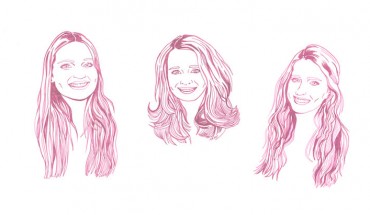Why we need to start talking about doubt in medical school.
In recent weeks, in the aftermath of Jeremy Hunt’s decision to force through new contracts on junior doctors, an oft hidden subsection of medics has come to the fore, namely ‘the doubters’. Hidden behind the cries of the devoted, who would move all the way to Australia to be able to keep doing a job they love, are those that are slinking quietly away to consider if medicine is really all there is. Perhaps it is time for us to let the doubters be heard.
From the day one arrives at medical school, it seems as though one is being placed on a conveyor belt with only one destination, a lifetime’s work in the NHS. And expressing doubt is not popular. Bow down to the alter of medicine, kiss the ring, you have been admitted to the hallowed halls, so now you better enjoy it. That is at least how it sometimes seems from my standpoint, as a self-confessed doubter. Yet, once I started talking about it I discovered I was not in fact alone. There are many in my position who are suddenly turning around, a few years older and wondering, did we make the right choice?
Yet at every turn the idea of doubt is considered toxic. This is illustrated by the admissions system, whereby if you have been offered a place to study medicine previously and not taken it up, you are unlikely to ever be offered a place anywhere again. So from the day you receive an offer the die is cast, you must take it. You must take it even if you don’t want to go to that university for whatever reason, you must choose medicine above all else. But at this point, given the competition to get in, most people are so grateful to be accepted they would take a place at the University of Timbuktu if it came their way. And should you arrive and decide you hate it you must square yourself to the reality that if you leave you will never be accepted to another course, you have a black mark against your name (unless of course you leave with serious mitigating circumstances, but even then it is doubtful). So, unless you are 100 per cent certain that you don’t want to study medicine you are in quite an impossible position. Your options are stay and doubt or leave and try not to regret it. I have a friend who did leave, and to this day she avoids anything remotely medical, for fear that it will spark regret. A regret that cannot be remedied.
Then when it comes to planning your career after medical school you are told that any time out must be accounted for and that and break from training might lead to questions about your commitment. And a lack of commitment is a cardinal sin. Yet to ask people to commit so entirely to one thing from the day they start university until the day they retire seems to me to be the perfect recipe for discontent. Especially at a time when our working lives are longer than ever. This attitude also strangely contradicts what we are told when we apply, that medical schools are seeking ‘well-rounded’ individuals with broad interests.
And more than anything I see this obsession with commitment to be counter-productive. It is a logical leap to assume that anyone who needs time to think about their career cannot be a good doctor. In fact, I would proffer that by allowing people to explore other things and then return you will have a more dedicated, less disillusioned crop of doctors. The current doctor’s strike shows the levels of frustration felt by young doctors working today about their pay and conditions, but I also wonder if it is partly a venting of frustration about the strictures placed on their lives. So perhaps it is time to put aside the need for superhuman levels of commitment and allow people to stray slightly from the accepted path. I would imagine most of them will come back, more committed than before, knowing that the challenges of medicine are far outweighed by the possibilities it provides.
- A Blind-Spot - 17th July 2016
- Being A Patient – Should I tell my doctor that I am a medical student? - 1st April 2016
- It’s a Sign – What a Textbook Can’t teach - 20th March 2016






